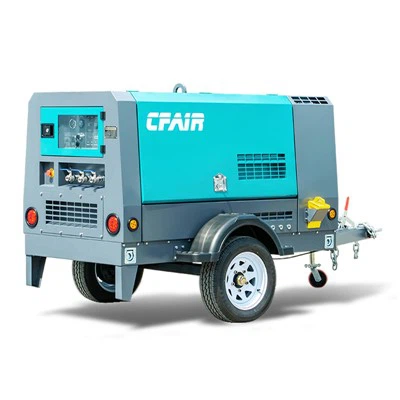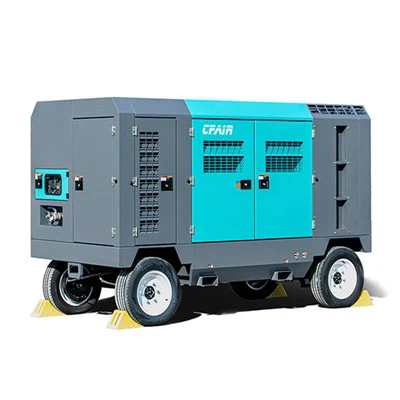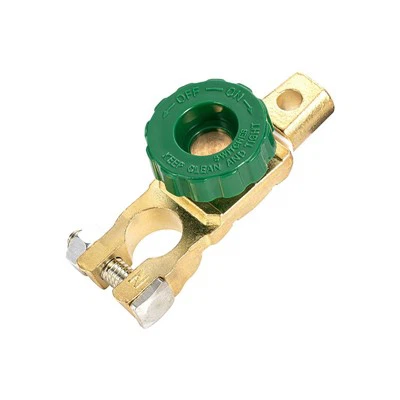Mobile air compressors are versatile and essential tools used in a wide range of industries, from construction and mining to agriculture and manufacturing. As a leading mobile air compressor supplier, we understand the importance of choosing the right fuel for your compressor to ensure optimal performance, efficiency, and cost-effectiveness. In this blog post, we will explore the different types of fuels that mobile air compressors can use, their advantages and disadvantages, and factors to consider when making a choice.
1. Diesel Fuel
Diesel is one of the most commonly used fuels for mobile air compressors, especially in large - scale industrial and outdoor applications.
Advantages
- High Energy Density: Diesel fuel has a high energy density, which means it can provide a large amount of power per unit volume. This allows diesel - powered mobile air compressors to generate more compressed air with less fuel consumption compared to some other fuels. For example, in construction sites where continuous and high - volume air supply is required for pneumatic tools like jackhammers and nail guns, diesel - powered compressors can operate for extended periods without frequent refueling.
- Durability and Reliability: Diesel engines are known for their robustness and long - term reliability. They are designed to withstand heavy - duty use and harsh working conditions. Diesel mobile air compressors can operate in extreme temperatures, dusty environments, and rough terrains, making them ideal for construction, mining, and oil and gas exploration sites.
- Good Torque Characteristics: Diesel engines offer high torque at low RPMs. This is beneficial for mobile air compressors as it allows them to start up quickly and handle sudden increases in air demand without stalling.
Disadvantages
- Emissions: Diesel engines produce more pollutants such as particulate matter (PM), nitrogen oxides (NOx), and sulfur oxides (SOx) compared to some other fuels. This can be a concern in areas with strict environmental regulations. However, modern diesel engines are equipped with advanced emission control technologies such as diesel particulate filters (DPF) and selective catalytic reduction (SCR) systems to reduce emissions.
- Higher Initial Cost: Diesel - powered mobile air compressors generally have a higher upfront cost compared to some other types. This is due to the more complex engine design and the additional emission control equipment.
If you are interested in diesel - powered mobile air compressors, you can check out our Towable Diesel Air Compressor and Diesel Powered Air Compressor product lines.
2. Gasoline Fuel
Gasoline is another option for powering mobile air compressors, particularly for smaller and more lightweight models.
Advantages
- Widely Available: Gasoline is readily available at most gas stations, making it convenient for refueling, especially in urban and suburban areas. This is a significant advantage for users who need to operate their compressors in different locations and may not have easy access to diesel fuel.
- Lower Initial Cost: Gasoline - powered mobile air compressors are usually less expensive to purchase than their diesel counterparts. This makes them a more affordable option for small businesses, DIY enthusiasts, and home users.
- Quieter Operation: Gasoline engines tend to run quieter than diesel engines. This can be an important factor in applications where noise levels are a concern, such as indoor workshops or residential areas.
Disadvantages
- Lower Energy Efficiency: Gasoline has a lower energy density than diesel fuel, which means that gasoline - powered compressors may consume more fuel to produce the same amount of compressed air. This can result in higher operating costs over time.
- Shorter Lifespan: Gasoline engines generally have a shorter lifespan compared to diesel engines, especially when used for heavy - duty applications. They are also more prone to maintenance issues such as carburetor problems and spark plug fouling.
3. Natural Gas
Natural gas is an increasingly popular fuel choice for mobile air compressors, especially in areas where natural gas is abundant and cost - effective.
Advantages
- Lower Emissions: Natural gas is a cleaner - burning fuel compared to diesel and gasoline. It produces fewer greenhouse gas emissions, particulate matter, and nitrogen oxides, making it a more environmentally friendly option. This is particularly important for companies looking to reduce their carbon footprint and comply with environmental regulations.
- Cost - Effective: In many regions, natural gas is less expensive than diesel and gasoline. This can result in significant cost savings over the long term, especially for high - usage applications.
- Abundant Supply: Natural gas reserves are relatively abundant, and the infrastructure for its distribution is expanding. This makes it a reliable and accessible fuel source for mobile air compressors.
Disadvantages
- Limited Refueling Infrastructure: While the natural gas distribution network is growing, it is still not as widespread as the gasoline and diesel refueling infrastructure. This can be a challenge for users who need to operate their compressors in remote areas or areas with limited natural gas availability.
- Lower Energy Density: Natural gas has a lower energy density than diesel and gasoline, which means that natural gas - powered compressors may require larger fuel storage tanks to achieve the same operating range.
4. Electric Power
Electric mobile air compressors are also available, and they offer several unique advantages.


Advantages
- Zero Emissions: Electric compressors produce no tailpipe emissions, making them an ideal choice for indoor use or areas with strict air quality regulations. They are also a more sustainable option as they can be powered by renewable energy sources such as solar or wind power.
- Low Maintenance: Electric motors have fewer moving parts compared to internal combustion engines, which means they require less maintenance. There is no need for oil changes, spark plug replacements, or fuel system maintenance.
- Quiet Operation: Electric compressors are very quiet, which is beneficial in noise - sensitive environments such as hospitals, schools, and offices.
Disadvantages
- Limited Mobility: Electric compressors need to be connected to a power source, which limits their mobility. They are not suitable for use in remote areas where there is no access to electricity. However, some electric compressors can be used with battery packs or generators to increase their mobility.
- Power Limitations: The power output of electric compressors is often limited by the available electrical supply. In some cases, they may not be able to provide the same high - volume or high - pressure air as diesel or gasoline - powered compressors.
Factors to Consider When Choosing a Fuel
- Application Requirements: Consider the type of work you will be using the compressor for. If you need a high - volume, continuous air supply for heavy - duty applications such as construction or mining, a diesel - powered compressor may be the best choice. For light - duty, intermittent use or indoor applications, an electric or gasoline - powered compressor may be more suitable.
- Operating Environment: The operating environment plays a crucial role in fuel selection. If you work in areas with strict environmental regulations, a natural gas or electric compressor may be preferred. If you need to operate in remote areas without access to electricity or natural gas, a diesel or gasoline - powered compressor is more practical.
- Cost Considerations: Evaluate both the initial purchase cost and the long - term operating costs. While diesel and gasoline compressors may have a higher upfront cost, they may be more cost - effective in the long run if they offer better fuel efficiency and durability.
- Refueling Infrastructure: Consider the availability of refueling infrastructure in your area. If it is easy to access diesel, gasoline, natural gas, or electricity, it will make your operation more convenient.
As a leading mobile air compressor supplier, we can help you choose the right fuel type for your specific needs. Our team of experts can provide you with detailed information about our Engine Drive Air Compressor and other product lines, and assist you in making an informed decision. If you are interested in purchasing a mobile air compressor, please feel free to contact us for more information and to discuss your requirements. We look forward to working with you to find the perfect solution for your air compression needs.
References
- "Handbook of Air Compressor Engineering" by Heinz P. Bloch
- "Compressed Air Systems: Selection, Installation, and Operation" by the Compressed Air and Gas Institute






